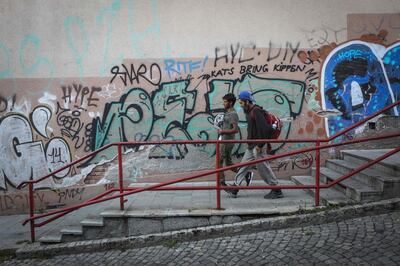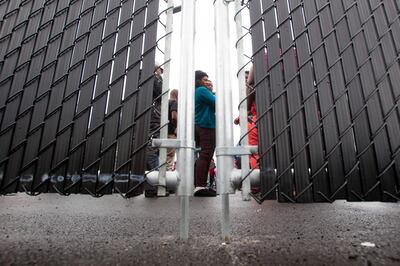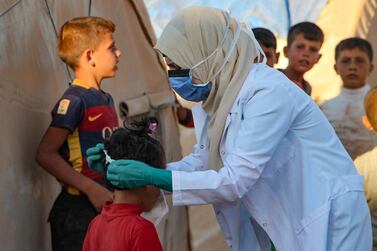Alphonso Davies came from humble beginnings. His parents fled civil war in Liberia, settling in a refugee camp in Ghana, where he was born. At age five, he moved to Edmonton, Canada and became a Canadian citizen. And at 19, he’s already on the path to becoming a football legend.
Davies’s meteoric rise over the past few months with German side Bayern Munich is extraordinary. From a virtual unknown, he has become a key fixture in the team that won the treble this year – the Bundesliga, the German Cup and the Champions League. Davies, as Prime Minister Justin Trudeau has pointed out, is a refugee to Canada who has become the first Canadian ever to hold the Champions League trophy Davies, and that has made Canadians proud.
This heroic success story came a year after Bianca Andreescu, the daughter of Romanian immigrants, defeated Serena Williams in the US Open to become the first Canadian to win a Grand Slam singles’ title.
Davies and Andreescu come from very different backgrounds, but their triumphs are immigrant success stories in a time of closed borders and fear of the other. In recognising the contributions of immigrants and other newcomers, as well as the challenges they have faced to make it in their new homes, we must ensure that today’s closed borders don’t become permanent iron curtains.
The coronavirus pandemic has ushered in extraordinary limits on travel and movement around the world. Early on, many countries shut down their borders for all but essential travel in an effort to curb the virus’s spread. These measures have been necessary insofar as they contribute to that effort. Many borders remain closed – one significant example being the Canada-US border, the longest undefended frontier on the planet, sealed for the longest period in 200 years as a result of America’s failure to grapple with the pandemic. Many borders are reopening, but coupled with severe restrictions ranging from quarantine requirements to pre-flight tests and the screening of arrivals, in addition to measures like mandatory mask-wearing.

The world was already becoming more closed in the years leading up to the pandemic. The populist tide that followed the 2015 refugee crisis, when millions of people from the Middle East and beyond sought safe haven on Europe’s shores, brought many xenophobic nationalists to power. The administration of US President Donald Trump has proferred more anti-immigrant rhetoric than any of its recent predecessors. Some public officials in Britain, Eastern Europe, India, Brazil, Italy and elsewhere have stoked xenophobic sentiments in their election campaigns, sought to block the flow of refugees across the sea and governed on platforms that reject deviation from a mythic past of racial purity.
Canada, despite having a relatively stringent, merit-based immigration system, did not join this wave. It took in tens of thousands of Syrian refugees, and continued to advocate publicly for a more humane approach. This does not mean that racial inequalities do not exist – lower income neighborhoods have suffered more in the pandemic, the state has a long history of abusing and separating indigenous children from their parents and debate is ongoing on systemic racism in the police force.
Moreover, the fear of immigrants has been supplanted by a broader fear of the other as a result of the pandemic. We now fear infection, a hidden virus that threatens our survival through chance interactions with strangers.

As restrictions ease, one issue not discussed enough is the logjam that is now obstructing our efforts to revive openness in the world. The pandemic has ushered in widespread delays to the processing of visas and immigration applications. This has been an acute problem in Canada, which relies on a steady flow of immigrants for its long-term economic growth.
A permanent residency (PR) application, which usually takes about a little over a year, may now take two years to be processed, according to immigration lawyers. I’m still waiting on my own PR, which I applied for in February 2019. It’s easier to wait if you’re already in a safe country like Canada, but imagine being one of many refugee families waiting desperately to be reunited with your loved ones. All over the less fortunate parts of the world, there are mothers waiting for their children in limbo, or husbands waiting for their wives to be granted visas by the powers that be.
It will take a long time before we all collectively recover from the pandemic, both its physical and psychological effects. But in the struggle to defeat the virus, we should not lose sight of the societies and nations we want to build. These are the societies that make someone like Alphonso Davies possible.
Kareem Shaheen is a veteran Middle East correspondent in Canada and columnist for The National






